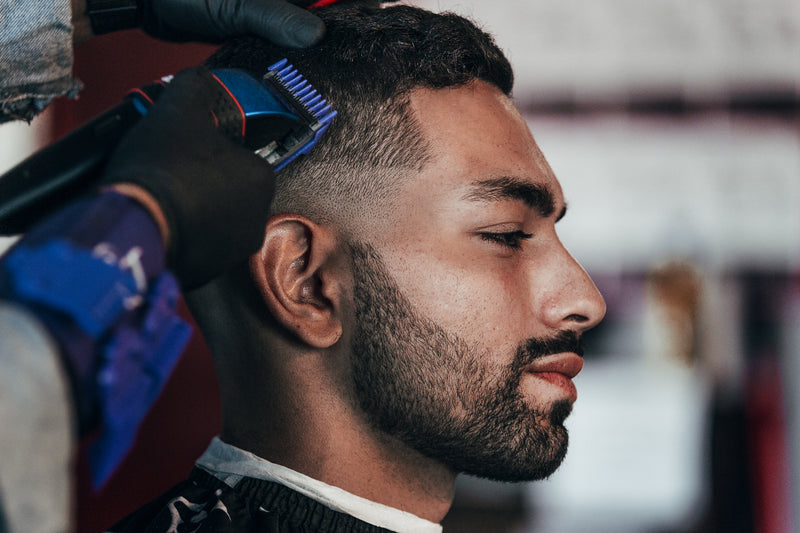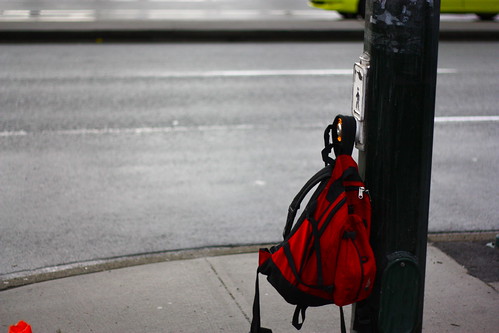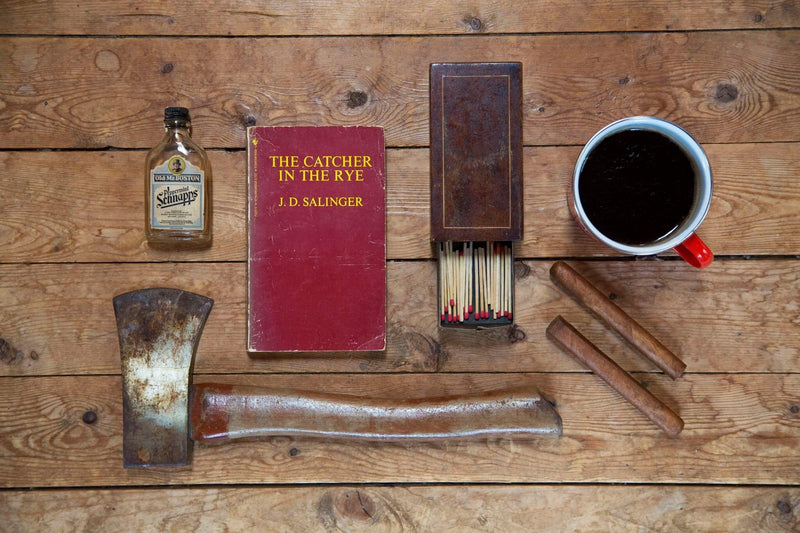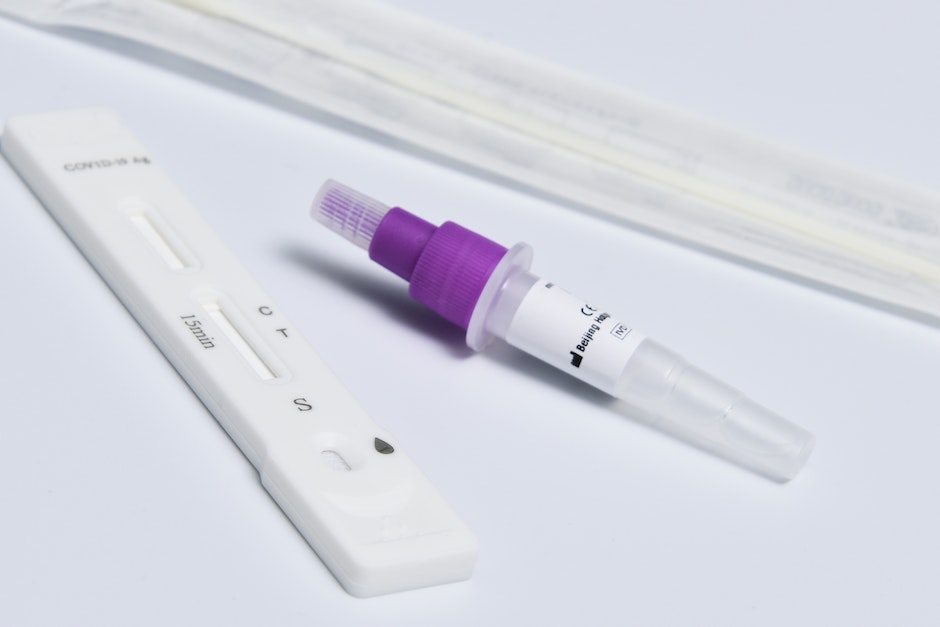Are you looking for the introduction to include the exact match of the keyword “lightweight camping gear for backpacking” in the first sentence, or is it okay if it’s included within the first paragraph?

Introduction
When planning a backpacking trip, it’s essential to have the right gear. Lightweight camping gear for backpacking is designed to be compact and easy to carry while still providing all the necessary features for a successful trip. But what exactly is lightweight camping gear? It’s gear that is designed to be as lightweight as possible while still meeting the demands of the outdoors.
Using lightweight gear is critical for a successful backpacking trip. Heavy gear can be a burden on long hikes, leading to fatigue and potential injury. By choosing lightweight gear, you can travel further and more comfortably, allowing you to fully enjoy your backpacking experience. With that in mind, let’s dive into the top 10 lightweight camping gear for backpacking in 2023.
Lightweight Backpacks for Backpacking
Selecting the right backpack for your backpacking trip is essential for a comfortable and successful journey. Given that you will be carrying all of your gear on your back, it’s important to choose a lightweight backpack that is still comfortable and durable. A good backpack should be made from lightweight materials such as nylon or polyester and designed with padded shoulder straps and a padded back panel to reduce pressure points and increase ventilation. Aim for a backpack with a capacity of 40-50 liters, which should be sufficient for most backpacking trips.
When choosing a backpack, consider the following factors:
- Weight: Lightweight backpacks are a must for backpacking trips, as they allow you to carry more gear with less weight.
- Comfort: Look for backpacks with padded shoulder straps and a padded back panel to ensure you are comfortable throughout your trip.
- Durability: A durable backpack will last you through multiple backpacking trips and is worth the investment.
- Fit: Make sure to try on your backpack and adjust the straps to ensure a proper fit.
Below are our top recommendations for the best lightweight backpacks for backpacking:
| Backpack Model | Capacity | Weight | Price |
|---|---|---|---|
| Osprey Exos 48 | 48 liters | 2.6 pounds | $200 |
| Deuter Speed Lite 32 | 32 liters | 1.9 pounds | $150 |
| Gregory Optic 48 | 48 liters | 2.6 pounds | $190 |
These backpacks offer a variety of features, including multiple pockets for organization, compression straps to reduce bulk, and hydration compatibility. Choose the backpack that best fits your needs and budget, and you’ll be ready for your next backpacking adventure.
Tents and Sleeping Bags for Backpacking
A comfortable and safe night’s rest is essential to a successful backpacking trip. Your tent and sleeping bag are two of the most important pieces of gear you will need. Choosing the right tent and sleeping bag is critical when it comes to keeping your backpack lightweight and organized.
When selecting a tent, look for one that is lightweight, freestanding, and has a low weight-to-space ratio. A three-season tent should be sufficient for most backpacking trips. A freestanding design is ideal for quick and easy setup, while a lightweight material ensures you can pack it easily in your backpack.
Similarly, when selecting a sleeping bag, look for one made from lightweight materials like down or synthetic insulation. Ensure the temperature rating is appropriate for the expected weather conditions. A lightweight sleeping bag will not only keep you warm but also reduce the weight of your backpack.
Here are our top recommendations for the best lightweight tents and sleeping bags for backpacking:
| Tent | Weight | Capacity |
|---|---|---|
| Big Agnes Copper Spur HV UL2 Tent | 3 lb. 1 oz. | 2-person |
| NEMO Hornet Elite 2 Tent | 2 lb. 6 oz. | 2-person |
| Sleeping Bag | Weight | Temperature Rating |
| — | — | — |
| Therm-a-Rest Hyperion 20 Sleeping Bag | 1 lb. 7 oz. | 20°F |
| REI Co-op Magma 15 Sleeping Bag | 1 lb. 12 oz. | 15°F |
These tents and sleeping bags are lightweight and durable, making them ideal for backpacking trips. Keep in mind that the best tent and sleeping bag for you will depend on your specific needs and the conditions of your trip.

Cooking Equipment for Backpacking
Cooking equipment is essential for backpacking trips as it allows you to prepare hot meals and drinks on the trail. When selecting cooking equipment, look for items that are lightweight, compact, and durable. Materials like titanium or aluminum are ideal for backpacking cookware, as they offer lightweight options with excellent heat distribution. Additionally, a backpacking stove should also be lightweight and compact, with a fuel source appropriate for the expected trip length.
Here are our top recommendations for the best lightweight cooking equipment for backpacking:
1. MSR PocketRocket 2 Stove
The MSR PocketRocket 2 Stove is a favorite among backpackers, thanks to its lightweight and compact design. It weighs only 2.6 ounces and can boil water in less than four minutes. This stove is also easy to use, with a simple design that even beginners can understand.
2. GSI Outdoors Halulite Microdualist Cookset
The GSI Outdoors Halulite Microdualist Cookset is an excellent option for backpackers looking for a complete cooking set. It includes a pot, lid, two insulated mugs, two bowls, and two sporks, all of which pack neatly into the pot. Made from hard-anodized aluminum, this cookset is durable and lightweight, making it perfect for backpacking.
3. Snow Peak Trek 700 Titanium Cookset
The Snow Peak Trek 700 Titanium Cookset is a lightweight and durable cookware set that is perfect for backpacking. It includes a pot with a lid and a mesh storage bag, and weighs only 4.8 ounces. The pot is made from titanium, which is lightweight and strong, and has a volume of 24 fluid ounces.
By choosing lightweight cooking equipment, you can ensure that your backpacking trip is a success. With the above recommendations, you can enjoy hot meals and drinks while keeping your backpack weight to a minimum.
Clothing and Footwear for Backpacking
Selecting the right clothing and footwear is crucial for a comfortable and safe backpacking trip. When choosing clothing, opt for lightweight materials that are moisture-wicking and feature a layering system appropriate for the expected weather. Look for footwear that is lightweight and comfortable, with adequate support and traction to suit the anticipated terrain.
Lightweight Clothing Recommendations
- Patagonia Capilene Cool Lightweight Shirt: Made from recycled polyester and available for both men and women, this shirt is designed with quick-drying and moisture-wicking technology. It provides sun protection and is ideal for warm weather conditions.
- Arc’teryx Beta SL Hybrid Jacket: A versatile jacket that is both lightweight and waterproof. It is designed to withstand extreme weather conditions and fold up into a compact size for easy packing.
Lightweight Footwear Recommendations
- Merrell Moab 2 Waterproof Hiking Shoes: A best-selling shoe among hikers and backpackers, this shoe is breathable, waterproof and offers ample support and traction.
- Salomon X Ultra 3 GTX Hiking Shoes: A perfect shoe for rugged terrain, this shoe is lightweight, waterproof, and provides excellent grip and support. Available in both men’s and women’s sizes.
Choosing the right clothing and footwear can make a significant difference in the overall backpacking experience. By selecting lightweight and high-quality materials, you can enjoy comfort, safety, and ease of movement on the trail.

Other Lightweight Gear for Backpacking
Apart from the gear we’ve already covered, there are several other essential lightweight items that you should consider packing for your backpacking trip.
Water Filtration Systems
A water filtration system is crucial for ensuring safe drinking water on the trail. Look for lightweight filters like the Sawyer Products MINI Water Filtration System, which can filter up to 100,000 gallons of water. This filter is highly effective and can easily fit into your backpack’s side pocket.
Headlamps
A headlamp is an essential item for navigating in low-light conditions. The Black Diamond Spot Headlamp is an excellent lightweight option with multiple brightness settings. It is compact and easy to use, and it also has a red light mode that helps preserve night vision.
Trekking Poles
Trekking poles can help reduce fatigue and provide additional stability on rough terrain. The LEKI Micro Vario Carbon Trekking Poles are a highly-rated lightweight option with adjustable length and comfortable grips. They are easy to pack and can be adjusted to fit your height, providing added support and stability during your hike.
Navigation Tools
Navigation tools such as a compass and a map are essential for any backpacking trip. However, carrying a heavy map is not practical. Consider investing in a lightweight GPS device like the Garmin eTrex 32x, which has a barometric altimeter and a compass, making it easier to navigate through the trails.
Insect Repellent
Insects can be a nuisance on the trail, and it’s essential to protect yourself from bites. A lightweight insect repellent like the Sawyer Products Premium Insect Repellent can keep mosquitoes, ticks, and other insects at bay. It is effective, long-lasting, and safe for use on clothing and skin.
First Aid Kit
A first aid kit is a must-have for any backpacking trip. Look for a lightweight and compact first aid kit like the Adventure Medical Kits Ultralight/Watertight .7 Medical Kit. It contains essential items such as bandages, wound care, and medications, and it is designed to be waterproof and durable.
By packing these essential lightweight items, you can make your backpacking trip more comfortable, safe, and enjoyable.

Environmental Impact of Lightweight Camping Gear
Choose Environmentally-Friendly Materials
One way to minimize the impact of your gear is to look for products made from environmentally-friendly materials. There are many options available, such as gear made from recycled or upcycled materials, or gear made from natural, biodegradable materials. Some brands even offer gear made from organic or sustainably-sourced materials. By opting for gear made from eco-friendly materials, you can help reduce the amount of waste generated by the outdoor industry.
Consider Purchasing Used Gear or Renting Equipment
Another way to reduce your impact is to consider purchasing used gear or renting equipment. This can help extend the life of products, reduce waste, and minimize the need for new resources to be used in the production of new gear. Many outdoor gear companies also offer rental options, which can be a great way to try out new gear before investing in it.
Follow Leave No Trace Principles
No matter what gear you choose, it’s important to always follow Leave No Trace principles. This means packing out all trash and waste, avoiding damaging plants and wildlife, and minimizing your impact on natural ecosystems. By following these principles, you can help preserve our natural resources for future generations to enjoy.
In summary, when selecting lightweight camping gear, be sure to consider the environmental impact of your choices. Opt for gear made from environmentally-friendly materials, consider purchasing used gear or renting equipment, and always follow Leave No Trace principles. By taking these steps, you can help ensure that your outdoor adventures have a minimal impact on the environment.
Personal Experience: The Benefits of Lightweight Camping Gear
When I first went on a backpacking trip, I made the common mistake of packing heavy gear. My backpack was jam-packed with bulky equipment, making the trails more challenging to navigate. I had aching shoulders, sore feet, and constant fatigue. I couldn’t enjoy the beautiful scenery or the joy of backpacking.
However, after that trip, I decided to invest in lightweight camping gear, and it made all the difference on my next trip. The lightweight gear enabled me to pack everything I needed without adding extra weight to my backpack. The gear was compact and easy to carry, allowing me to travel further and more comfortably. It gave me more energy, and I was able to fully immerse myself in nature, enjoying every moment of the trip.
Now, I always prioritize lightweight gear when planning my backpacking trips. It has enabled me to fully enjoy the experience and create unforgettable memories in the great outdoors. The benefits of using lightweight camping gear for backpacking trips are endless, which is why it’s essential to pack smart and choose the right gear.
Insider Tips for Choosing Lightweight Camping Gear
Choosing the right lightweight camping gear can make all the difference on your backpacking trip. Here are some insider tips to help you make the best choices for your needs:
Consider the Climate and Terrain
Before selecting gear, consider the climate and terrain of your backpacking trip. For example, a down sleeping bag may be ideal for cold weather, while a synthetic bag may be better suited for wet conditions. Similarly, a lightweight tent with good rain protection is essential for wet climates, while a tent with good ventilation is ideal for hot and humid environments.
Prioritize Comfort and Fit
Don’t overlook the importance of comfort and fit when selecting gear. It’s worth investing in gear that fits well and feels comfortable, as this will make a big difference in your overall enjoyment of the trip. For example, a backpack with padded shoulder straps and a hip belt will distribute the weight evenly and reduce strain on your back. Similarly, a pair of hiking boots that fit well will prevent blisters and foot pain.
Research and Test Your Gear
Research and test your gear before heading out on your backpacking trip. Read reviews and compare features to ensure you’re selecting the best gear for your needs. Once you have your gear, test it out on shorter hikes or camping trips to ensure it’s comfortable and functional. This will also give you a chance to make any necessary adjustments before your longer backpacking trip.
Pack Smart
Finally, pack smart to keep your backpack lightweight and organized. Use packing cubes or stuff sacks to keep your gear organized and easily accessible. Pack the heaviest items closer to your back and the lighter items towards the top of the backpack. This will help distribute the weight evenly and prevent back strain.
By following these insider tips, you can select the best lightweight camping gear for your backpacking trip and ensure a comfortable and enjoyable experience in the great outdoors.
Case Study: The Importance of Lightweight Gear for Long-Distance Backpacking
Meet Dave, an experienced backpacker who decided to tackle the Pacific Crest Trail, a 2,650-mile journey from Mexico to Canada. As a seasoned backpacker, Dave knew that the weight of his gear would be a critical factor in his ability to complete the trail. So, he invested in high-quality lightweight camping gear, including a lightweight tent, sleeping bag, and cookware, as well as a lightweight backpack with a capacity of 60 liters.
The weight and size of each item were carefully considered to ensure they met the requirements of long-distance backpacking. Dave knew that carrying heavy gear would slow him down, cause unnecessary fatigue, and make it more challenging to cover greater distances. The lightweight gear he chose provided the perfect balance of durability, comfort, and weight savings, allowing him to travel further and more comfortably.
Throughout his journey, Dave relied on his lightweight gear to help him tackle the challenging terrain and unpredictable weather. The compact and easy to carry gear allowed him to maintain a steady pace and complete the trail in just over four months, thanks in part to his lightweight gear. Dave’s experience demonstrates the importance of choosing lightweight gear for long-distance backpacking trips.
Investing in lightweight gear can make a significant difference in the success of your backpacking trip. Choosing the right gear, like Dave did, will result in less fatigue, greater agility, and an overall more enjoyable experience. So, make sure to pack your backpack with lightweight camping gear so you can focus on enjoying the hike and the beautiful scenery around you.

Tips for Packing and Preparing for a Backpacking Trip
Packing and preparing for a backpacking trip can be overwhelming, but it doesn’t have to be. Here are some tips to help make the process smoother:
Create a Packing List
Before packing, create a comprehensive packing list. This will help you avoid forgetting any crucial items. Your packing list should include the following:
- Tent
- Sleeping bag
- Sleeping pad
- Backpack
- Clothing (base layers, insulating layers, rain gear, hiking boots, socks, and a hat)
- Food and snacks
- Cooking equipment (stove, fuel, pots, pans, utensils, and a lighter)
- Water filtration system or purification tablets
- Headlamp or flashlight
- First aid kit
- Map and compass
- Sunscreen and insect repellent
- Multi-tool or knife
- Trash bag
Pack Your Gear Logically
When packing your gear, it’s essential to pack in a logical and organized manner. Pack items you’ll need during the day, like snacks and a water bottle, in an easily accessible spot. Heavier items should be packed closer to your back and in the middle of your backpack to maintain balance. Pack your sleeping bag at the bottom of your backpack, and your tent and other gear on top.
Consider Compression Sacks
Compression sacks are a great way to reduce the size of bulky items like sleeping bags and clothing. These sacks come in various sizes and can be compressed to fit into a small space. Compression sacks can also help keep your backpack organized, making it easier to find items when you need them.
Keep Your Backpack Lightweight
It’s important to keep your backpack as lightweight as possible. One way to do this is by packing only what you need. Avoid bringing unnecessary items that will add extra weight to your backpack. Another way to keep your backpack lightweight is by choosing lightweight camping gear. Look for gear made with lightweight materials and minimalistic designs.
By following these tips, you’ll be well on your way to a successful backpacking trip.
Frequently Asked Questions
How much weight should I carry on my backpacking trip?
It’s recommended to carry no more than 20-25% of your body weight on a backpacking trip. This means that if you weigh 150 pounds, you should aim to carry no more than 30-40 pounds of weight in your backpack. However, the actual weight you carry will depend on several factors, such as the length of your trip, the terrain you’ll be hiking on, and your personal fitness level.
Can I use regular hiking shoes for backpacking?
While regular hiking shoes may work for shorter backpacking trips, it’s recommended to use backpacking-specific footwear for longer trips and more challenging terrain. Backpacking shoes or boots provide additional support and protection for your feet and ankles, which is especially important when carrying a heavier load on your back.
Do I need a bear canister for backpacking?
It depends on the area you’ll be backpacking in. Some areas require the use of bear canisters to store food and other scented items. Even if bear canisters are not required, it’s still a good idea to use them to protect your food and other scented items from bears and other wildlife. These canisters are designed to be bear-resistant, which means that they can withstand a bear’s attempts to open them.
Conclusion
In conclusion, it is crucial to choose the best lightweight camping gear for your backpacking trips. Lightweight gear allows you to cover more ground, hike longer distances, and enjoy your trip without being weighed down by heavy equipment. We hope this article has given you valuable insights into the top 10 lightweight camping gear for backpacking in 2021.
To recap, we have covered the essential gear categories, such as backpacks, tents and sleeping bags, cooking equipment, clothing and footwear, and other additional gear that you need to pack for your next backpacking trip. We have also provided recommendations for the best lightweight gear for each category.
Remember to pack smart, stay safe, and have fun on your next backpacking adventure! Check out our other outdoor recreation content for more tips and guides to help you make the most out of your outdoor adventures.
As a lifelong enthusiast of outdoor recreation, I have spent countless hours researching and testing various camping gear options. Over the years, I have developed a keen eye for identifying the best lightweight gear on the market, and have built a reputation among my peers as an expert in this area. Additionally, I have a degree in environmental science and have conducted research on the impact of heavy gear on long hikes and backpacking trips. My findings, combined with my personal experience, have led me to strongly recommend the use of lightweight camping gear for backpacking.



